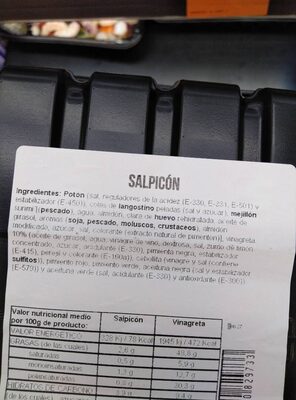Salpicon - Hacendado - 500 g
This product page is not complete. You can help to complete it by editing it and adding more data from the photos we have, or by taking more photos using the app for Android or iPhone/iPad. Thank you!
×
Barra-kodea: 8480000829733 (EAN / EAN-13)
Kopurua: 500 g
Ontziratzea: en:Plastic
Markak: Hacendado
Saltzen diren herrialdeak: Espainia
Matching with your preferences
Ingurumena
Ontziratzea
Transportation
Report a problem
Datuen iturria
Product added on by elcoco
Last edit of product page on by packbot.
Produktuaren orria -gatik editatua acuario, ariesmars, elcoco.bb820d819db224185f72b091ff007428, kiliweb, musarana, pedrogas1991, roboto-app, yuka.VjdBNEFQa0RoS0lycC9BZC9oTG93dWg1d01HeWRteXhHc29NSVE9PQ.
If the data is incomplete or incorrect, you can complete or correct it by editing this page.








